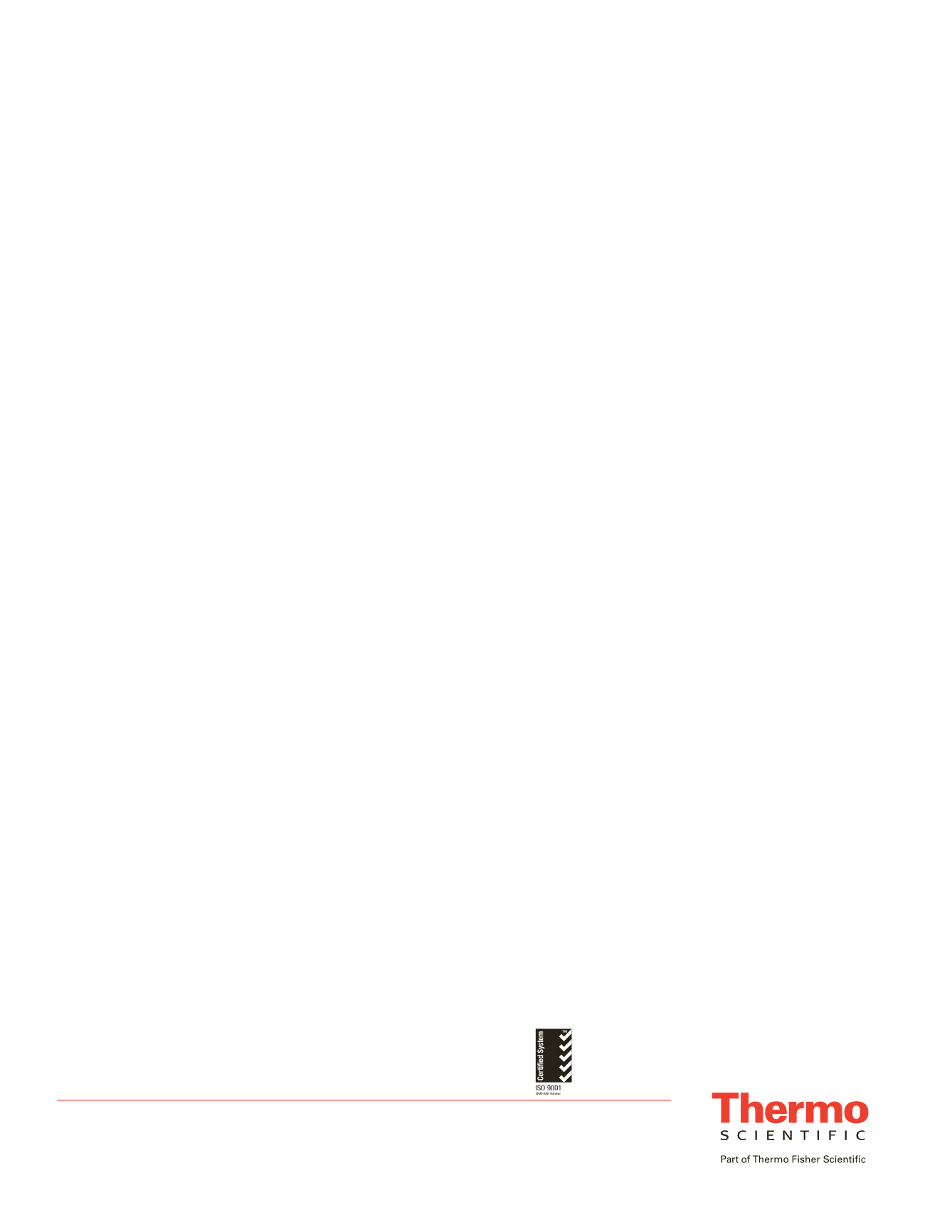
 www.thermoscientific.com
www.thermoscientific.com
©2014 Thermo Fisher Scientific Inc. All rights reserved. ISO is a trademark of the International Standards Organization. All other
trademarks are the property of Thermo Fisher Scientific, Inc. and its subsidiaries. Specifications, terms and pricing are subject to
change. Not all products are available in all countries. Please consult your local sales representative for details.
Thermo Fisher Scientific,
San Jose, CA USA
is ISO 9001:2008 Certified.
PN-MSACL-2014-Spectral-Libraries-Frewen_E_03/14S
Africa
+43 1 333 50 34 0
Australia
+61 3 9757 4300
Austria
+43 810 282 206
Belgium
+32 53 73 42 41
Canada
+1 800 530 8447
China
800 810 5118
(free call domestic)
400 650 5118
Denmark
+45 70 23 62 60
Europe-Other
+43 1 333 50 34 0
Finland
+358 9 3291 0200
France
+33 1 60 92 48 00
Germany
+49 6103 408 1014
India
+91 22 6742 9494
Italy
+39 02 950 591
Japan
+81 45 453 9100
Latin America
+1 561 688 8700
Middle East
+43 1 333 50 34 0
Netherlands
+31 76 579 55 55
New Zealand
+64 9 980 6700
Norway
+46 8 556 468 00
Russia/CIS
+43 1 333 50 34 0
Singapore
+65 6289 1190
Spain
+34 914 845 965
Sweden
+46 8 556 468 00
Switzerland
+41 61 716 77 00
UK
+44 1442 233555
USA
+1 800 532 4752
Conclusion
Endogenous peptides can successfully act as retention time landmarks and
accurately estimate RT in new gradients.
Spectrum libraries capture valuable retention time information.
Our algorithm finds endogenous peptides with consistent elution behavior to
act as standards.
We can accurately predict the retention time of any library peptide by
estimating it relative to the standard peptides. Therefore, comparisons can
more easily be made across datasets with accurate mass and retention time
measurements (AMT). This capability also enables method transfer to
scheduled LC-MRM.
Library-based estimated retention times are closer to the observed times
than predictions made based on hydrophobicity.
References
1. Krokhin OV, Spicer V. (2009) Peptide retention standards and
hydrophobicity indexes in reversed-phase high-performance liquid
chromatography of peptides.
Anal Chem
81(22):9522-30.
Acknowledgments
This research has been funded by the National Cancer Institute (P30
CA076292, P50-CA119997 to EH, R21 CA169979 to EH, R21 CA169980 to JK)
and the American Lung Association (LCD-257857-N to JK) as well as the Moffitt
Foundation.
All trademarks are the property of Thermo Fisher Scientific and its subsidiaries.
For Research Use Only. Not for use in diagnostic procedures.
This information is not intended to encourage use of these products in any manners that might infringe the
intellectual property rights of others.
nt
ptide stored in
des. (Figure 3a)
t (Figure 3b).
dients. Then
average time is
addition, we
icity (Krohkin,
ce between the
two estimation
n of the
ophobicity
in +/- 10
rlier or later
oo early at the
be due to
Time difference (minutes)
Retention time (minutes)
A
B



















